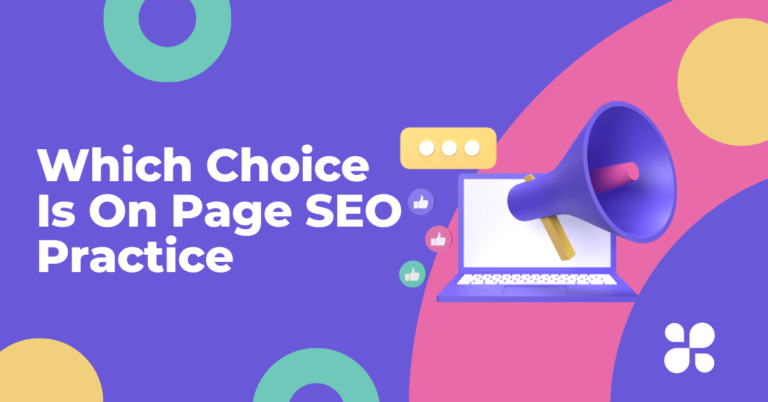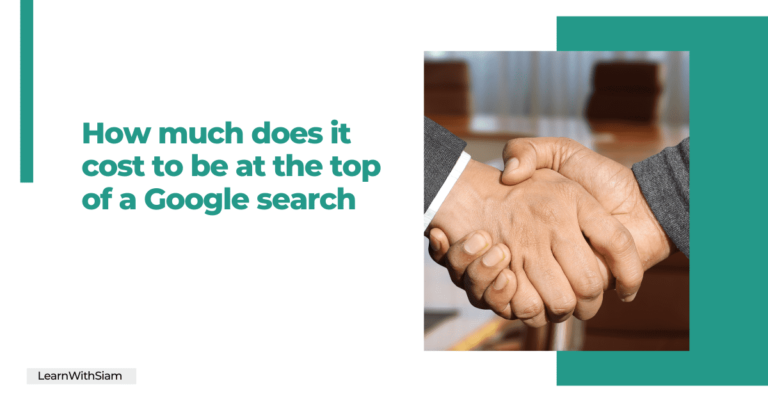What Is the Most Important On Page SEO Factor?
In the ever-evolving landscape of digital marketing, search engine optimization (SEO) is the compass that guides businesses toward online success. SEO encompasses a multitude of strategies and techniques aimed at improving a website’s visibility on search engine results pages (SERPs). Among these strategies, on page SEO plays a pivotal role. But amidst the sea of on page factors, which one stands out as the most important? In this comprehensive guide, we will unravel the mysteries of on page SEO, explore its crucial elements, and ultimately answer the burning question: What is the most important on page SEO factor?
- Introduction
- Understanding On Page SEO
- The Crucial Role of Keywords
- High-Quality Content: The Cornerstone
- Optimizing SEO Meta Tags
- Title Tags and Headings
- SEO URL Structure Matters
- Image SEO Optimization
- Internal and External Linking
- Mobile-Friendly Design
- Page Loading Speed
- User Experience and Dwell Time
- Security and SSL
- Schema Markup
- Conclusion
- FAQs
Introduction
SEO has become the lifeblood of online success, with businesses and website owners constantly striving to climb the rankings on search engines like Google, Bing, and Yahoo. Among the two primary categories of SEO, on page SEO is the foundation upon which a website’s visibility is built. But before delving into the nitty-gritty details, let’s first understand what on page SEO is all about.
Understanding On Page SEO
On page SEO, also known as on site SEO, encompasses all the actions taken directly within a website to improve its search engine rankings and visibility. It involves optimizing various elements on a web page to make it more appealing to search engines and, consequently, to users. These optimizations, when executed effectively, result in higher organic traffic and improved rankings. So, what makes on page SEO so important in the digital age?
The Crucial Role of Keywords
One of the key components of on page SEO is keyword optimization. Keywords are the words or phrases that users type into search engines to find information. They are the bridge between what people are searching for and what your website offers. Hence, selecting and implementing the right keywords is undeniably the most important on page SEO factor.
But how do you choose the right keywords?
Researching Keywords Effectively
Keyword research involves identifying the words and phrases relevant to your content and target audience. There are numerous tools available, such as Google Keyword Planner and SEMrush, that can assist in this process. Consider factors like search volume, competition, and user intent when selecting keywords.
High-Quality Content: The Cornerstone

Keywords alone won’t propel your website to the top of SERPs. They need to be embedded within high-quality, informative, and engaging content. Content is king in the world of SEO, and it remains the cornerstone of on page optimization.
So, what constitutes high-quality content?
Characteristics of High-Quality Content
- Relevance: Content should be relevant to the topic and purpose of the page.
- Uniqueness: It should offer something new or present existing information in a unique way.
- Clarity: Information should be presented clearly, with proper grammar and structure.
- Engagement: Content should captivate and retain the reader’s attention.
- Value: It should provide value to the reader, whether through information, entertainment, or utility.
Optimizing SEO Meta Tags
Meta tags are HTML elements that provide information about a web page to search engines. These tags include the title tag, meta description, and header tags. Optimizing these elements is a fundamental aspect of on page SEO.
How can you optimize meta tags effectively?
Tips for Meta Tag Optimization
- Title Tag: Craft a compelling title containing the target keyword. Keep it concise (around 60 characters) and unique.
- Meta Description: Write a concise and engaging description (150-160 characters) that includes the keyword and encourages clicks.
- Header Tags: Use header tags (H1, H2, H3, etc.) to structure your content logically and include keywords where appropriate.
Title Tags and Headings
Title tags and headings play a crucial role in on page SEO. They provide structure to your content and help search engines understand the hierarchy of information.
How should you use title tags and headings effectively?
Best Practices for Titles and Headings
- Title Tag (H1): Make it clear, concise, and include the primary keyword.
- Subheadings (H2, H3, etc.): Use subheadings to break up content and make it more readable. Incorporate relevant keywords.
SEO URL Structure Matters
The URL of a web page is another on page SEO element that requires attention. An organized and descriptive URL can improve user experience and search engine rankings.
What makes a good URL structure?
Characteristics of a Good URL
- Descriptive: The URL should provide a hint about the page’s content.
- Short and Simple: Avoid long, convoluted URLs.
- Keyword Inclusion: If possible, include the target keyword.
Image SEO Optimization
Images can enhance the user experience and engagement on your website, but they also need to be optimized for SEO.
How can you optimize images for on page SEO?
Image Optimization Tips
- File Size: Compress images to reduce loading times.
- Alt Text: Include descriptive alt text with keywords for images.
- File Names: Use descriptive file names rather than generic ones.
Internal and External Linking
Links are the connectors of the web, and they hold significance in on page SEO as well. Both internal and external linking can impact your website’s performance.
What’s the best approach to linking?
Linking Strategies
- Internal Links: Use them to connect related pages within your website.
- External Links: Link to authoritative and relevant external sources when appropriate.
Mobile-Friendly Design

In an era where mobile devices dominate internet usage, having a mobile-friendly website is no longer optional.
How can you ensure your website is mobile-friendly?
Mobile SEO Optimization Tips
- Responsive Design: Use responsive design techniques to ensure your website adapts to various screen sizes.
- Mobile Usability: Test your website on mobile devices to ensure it functions smoothly.
Page Loading Speed
The speed at which your website loads is not only a ranking factor but also a crucial user experience element.
How can you improve page loading speed?
Speed Optimization Techniques
- Compress Images: Reduce image file sizes.
- Minimize HTTP Requests: Limit the number of requests made by your web page.
- Use Browser Caching: Cache static assets to reduce load times.
User Experience and Dwell Time

User experience (UX) is a broad concept that encompasses various aspects of a visitor’s interaction with your website. Dwell time, in particular, is a metric that search engines consider.
How can you enhance user experience and dwell time?
Improving UX and Dwell Time
- Quality Content: Deliver engaging and informative content.
- Fast Loading: Ensure your website loads quickly.
- Intuitive Navigation: Make it easy for users to find what they’re looking for.
Security and SSL
Website security is not just about protecting data; it also impacts SEO. Google favors secure websites with SSL certificates.
How can you secure your website and obtain an SSL certificate?
Steps to Enhance Security
- Install SSL: Obtain an SSL certificate and install it on your server.
- Regular Updates: Keep your website’s software and plugins updated.
- Security Plugins: Consider using security plugins to enhance protection.
Schema Markup
Schema markup is a powerful tool that can provide additional context to search engines about the content on your website.
How can you leverage schema markup for SEO?
Implementing Schema Markup
- Identify Relevant Schema Types: Choose appropriate schema types for your content.
- Structured Data Markup: Add structured data markup to your HTML.
Conclusion
In the realm of digital marketing, where competition is fierce and attention spans are short, on page SEO emerges as the beacon that guides websites to success. While various factors contribute to on page optimization, the most important on page SEO factor remains the careful selection and skillful implementation of keywords.
These words and phrases serve as the bridge between your content and your audience, guiding them to your virtual doorstep. But remember, on page SEO is not a one-time task; it’s a continuous journey of improvement, adaptation, and user-centricity. So, equip yourself with the knowledge and tools necessary to conquer the digital landscape and watch your website ascend the ranks of search engine glory. The journey begins with understanding that, indeed, keywords are the most important on page SEO factor.
FAQs
What is the role of on page SEO in website ranking?
On page SEO plays a pivotal role in website ranking by optimizing various elements within a web page to make it more appealing to search engines. This includes keyword optimization, content quality, meta tags, and more.
How can I choose the right keywords for my content?
Choosing the right keywords involves research using tools like Google Keyword Planner and considering factors like search volume, competition, and user intent.
Are backlinks considered part of on page SEO?
No, backlinks are primarily part of off-page SEO. On page SEO focuses on optimizing elements within the website itself.
Does on page SEO differ for mobile and desktop websites?
Yes, on page SEO should consider the differences between mobile and desktop websites, such as responsive design and mobile usability.
Is on page SEO a one-time effort, or does it require ongoing maintenance?
On page SEO is an ongoing effort. Regular updates to content, meta tags, and other elements are necessary to maintain and improve rankings.



